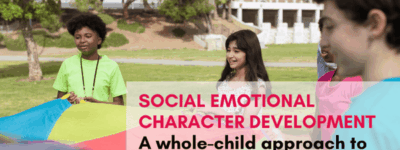Positive Youth Development, ACNJ’s newest initiative, explores the intersectionality of safety, wellness, and education, and elevates the strengths of youth (ages 9-21) and their communities, building on what they need to thrive, while at the same time focusing on preventing youth involvement in the juvenile justice system. For more information, contact Isaiah Fudge at ifudge@acnj.org.
What we do:
✔ Advocate for change, creation or the elimination of policies impacting youth.
✔ Listen, and create spaces to elevate the voices of those with lived experiences. The PYD team encourages people to share their stories authentically and without apology.
✔ Connect leaders from public, private, and philanthropic sectors around shared causes.
✔ Bridge the public with elected officials to clarify local issues in their districts.
We believe those closest to the problem(s) are usually the ones that have the solution(s). Therefore, we seek to:
1. Raise awareness about evidence-based initiatives and services that have a positive impact on youth such as community schools, community-led violence intervention and prevention initiatives, fatherhood cultivation programming, etc.
2. Highlight the organizations leading these initiatives and services.
3. Work with the community, parent organizations, and youth to co-design solutions.

Watch interviews featuring Youth Expert Stakeholders (Y.E.S.) sharing their insights on their lived experiences, identifying gaps in current support systems, and presenting solutions from their perspective.
Watch videos.
Key Issues Facing our Youth:
Youth Mental Health Wellness
Mental wellness issues persist among NJ’s youth. A concerning amount of youth are faced with threats and other issues that negatively impact their cognitive functioning. Undoubtedly, this negatively impacts their experiences in their schools and in their communities.
Our goals for mental wellness are:
- To re-imagine the narratives around mental wellness and the narratives around what impacts it.
- To reduce any stigma associated with mental wellness and mental wellness services, especially in communities of color.
- To improve the function and practice of navigating services and systems, so that youth and families receive proper and sufficient assistance when needed.
Education is the Key to Prevention
Education is a critical component to youth becoming successful adults. Youth who are harmed, anxious, stressed, hungry, in pain, or who have unaddressed learning or behavioral issues have a difficult time focusing in school and are more likely to have difficulty learning. These students can become distracted or disinterested, leading to absenteeism or discipline issues.
Our goals for education are:
- To ensure that every school in the state is a space where students and adults want to be and feel supported. student climate, chronic absenteeism, teacher retention, student discipline.
- To increase and sustain youth’s access to local, credible educators, supports, and services.
- To increase youth participation in informing educators and legislators.
Youth Safety
Safety is crucial to youth's education and mental wellness. When they experience violence, bias, and other harm, they are more likely to disengage from constructive behavior and engage in negative ones, even to the extent of hurting themselves. Misconceptions about the causes of transgressive youth behavior can lead to punitive or inaccurate responses.
Our goals for youth safety are to:
- Help change the narrative of public safety to one of a public health issue.
- Help elevate safety as a community responsibility rather than solely the responsibility of government or other systems.
- Help increase the sustainability of community-based safety work.
Youth Involved in the System
Treatment for system-involved youth is essential to their return and re-engagement in society. It is important to examine educational, mental wellness and safety services in the juvenile justice system.
Our goals for youth treatment are:
- To help create adequate opportunity for youth recovery, rehabilitation, growth, and successful return from justice system-involvement
- To aid systems where possible, to minimize their burden, streamline their processes, and unify them with the public








